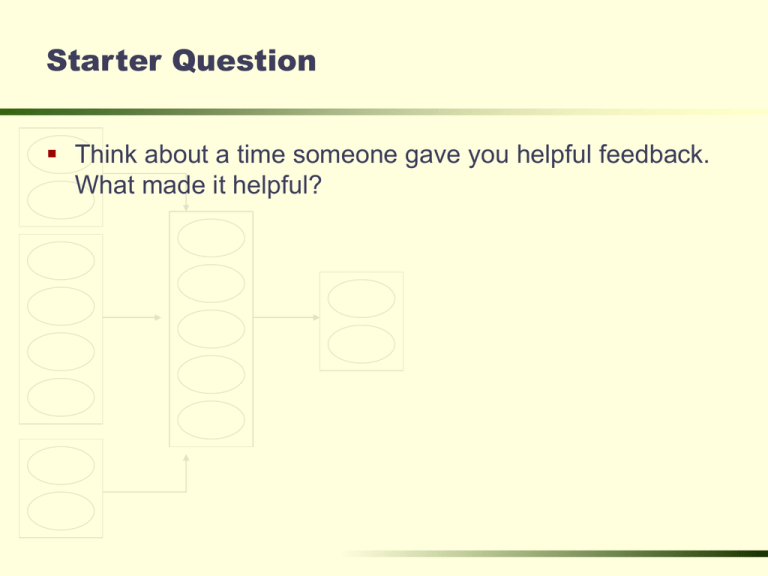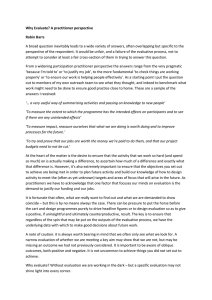Feedback
advertisement

Starter Question Think about a time someone gave you helpful feedback. What made it helpful? Feedback and Advice Advice is recommendations about what might be thought, said or done to manage a problem Feedback is evaluative communication Evaluation literally means “to find value in” Levels of Feedback Task and procedural Relational Individual Group Types of Feedback Descriptive Evaluative Praise Prescriptive Criticism Feedback and Advice Benefits of giving advice: Helps organization function more effectively Enhances employee identification with organization Enhances employee satisfaction & performancePraise (if positive) Increases awareness of expectations Allows management to learn things Criticism Giving feedback and advice can result in negative consequences: Make stress worse Undermine autonomy Damage the relationship with the advice giver Feedback and Advice Advice for giving good advice and feedback: Determine if advice/feedback is really needed or wanted Make sure you have expertise in the area you are advising in Come across as confident and share your similar experiences Advice/feedback should be appropriate for the relationship you have with the recipient (e.g., the closer you are the better) Be respectful of the recipient’s autonomy and competence Be detailed and accurate Use whole messages Recommend concrete, feasible behaviors that are useful Define appropriate consequences for success and failure Considerations When Giving Feedback Where: In public or in private When: Timeliness – Close in time to when behavior happened – No surprises or ambushing What: Behavior that can be changed Who: Alone or with others How: Partial vs Whole messages Whole Messages Direct, concrete messages that convey the truth with both kindness and firmness Whole messages combine: +Observations +Thoughts +Feelings +Needs +Consequences Partial messages leave one or more out Partial message: “Why don’t you act a little nicer?” Whole message: “You say very little (observation). It makes me think that you don’t care (thought). I feel angry (feeling), but what I really want is for you to talk to me (need). If you do, I will spend more time with you (consequence)” Advice for giving whole messages: Emphasize that you are being honest out of respect Put value on your relationship with the target Focus on things someone can change Guidelines for Receiving Feedback Listen without interrupting Keep an open mind and avoid defensiveness Paraphrase to ensure fidelity before responding Be gracious and assume the person giving feedback has your best interests in mind


